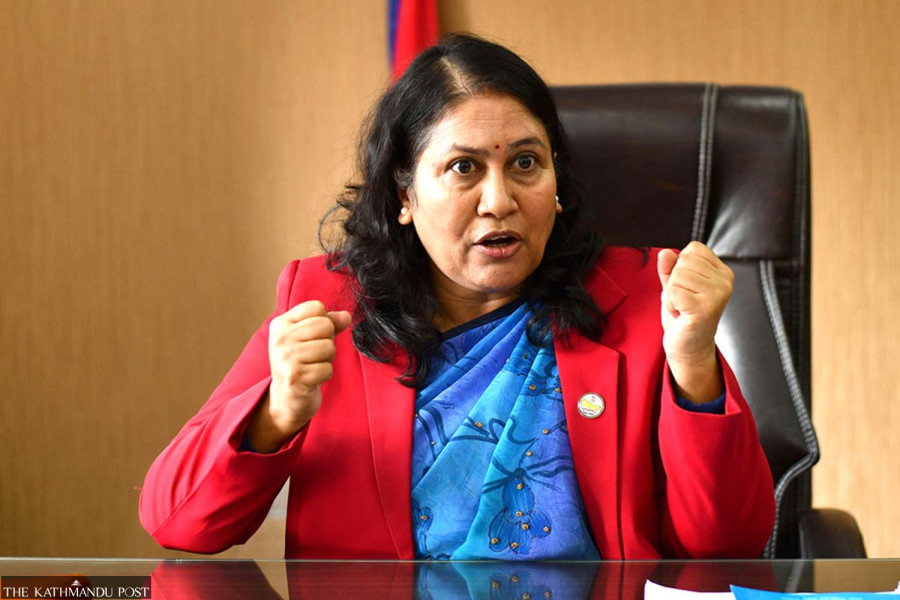National
Government prepares to delegate authority to handle SEE to provinces
Ignoring repeated requests from provincial governments, the federal government had so far been refusing to delegate the authority.
Post Report
The federal government is preparing to hand over the authority to manage school education examinations to the provincial governments.
Ignoring repeated requests from the provincial governments, the federal government had so far been refusing to delegate the authority to handle the grade 10 final tests.
Speaking at an interaction organised by the Education Journalists Network in Kathmandu on Thursday, Minister for Education, Science and Technology Bidya Bhattarai said the federal government will only manage the grade 12 national board examinations.
“We are already working to authorise the provincial governments to manage grade 1o examinations,” Bhattarai said.
The SEE for the current academic year is being held in March.
The eighth amendment to the Education Act in 2016 says the School Leaving Certificate Examinations (later renamed SEE) would be held at the regional level. The provinces have replaced the regions after the promulgation of the new constitution in 2015. However, the successive governments have been reluctant in delegating the authority.
The School Education Bill, which is under consideration in the parliament, envisions that the national-level board exams will be conducted only at the end of grade 12. It doesn’t talk about the SEE.
The local units will conduct grade eight tests. Though the bill doesn’t talk about giving any role to the provinces in examination management, the education minister has claimed they will be managing the SEE tests.
“Preparations are also ongoing to assign only the National Examination Board (NEB) to conduct all school level tests,” she said. Currently, while the NEB conducts the grade 12 test, the Office of the Controller of Examination conducts the grade 10 test.
Ever since taking the executive authority in July, Prime Minister KP Sharma Oli has been claiming the SEE success rate in the upcoming test will increase to 70 percent. It was below 50 percent in the previous examinations.
Asked how the 70 percent target would be attained, Bhattarai said, “Improving the teaching-learning environment is the first step. Similarly, we are also working to improve the evaluation system.”
The ministry has constituted a study panel to recommend reforms in the evaluation system. Some experts have been saying that the government wants to show improvements in the results by categorising those who receive 35 percent marks combined from theory and practical as graduates.
Currently, each SEE student must score at least 35 percent mark in theoretical exams to qualify for higher studies. Students failing to get the score in theoretical exams will not be eligible to enrol in class 11 and will receive their results in the non-graded category as separate grading for theoretical and practical exams have been adopted.
Each subject, including Mathematics, will have a 25-mark practical test and a 75-mark theoretical exam. Students have to secure 27 marks in the theoretical part. Practicals are conducted by the schools themselves, and the obtained marks are sent to the board.
“Whether the theoretical and practical marks will be combined will depend on the recommendation of the study panel,” said Bhattarai.
Bhattarai added the government is preparing to constitute a high level committee with a representative from the Department of Survey to study the encroached land of different universities. The Oli administration formed two separate committees to assess the lands belonging to the Tribhuvan University and the Nepal Sanskrit University. Both the reports suggested both the varsities have lost their land in encroachment. However, they have not given details of all the encroachers.
“The land of other universities too have been encroached,” Bhattarai said. “The high level panel with a broader mandate will trace the land of all the universities.”




 10.12°C Kathmandu
10.12°C Kathmandu














